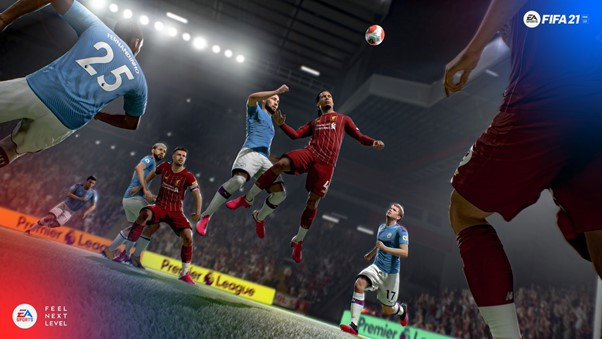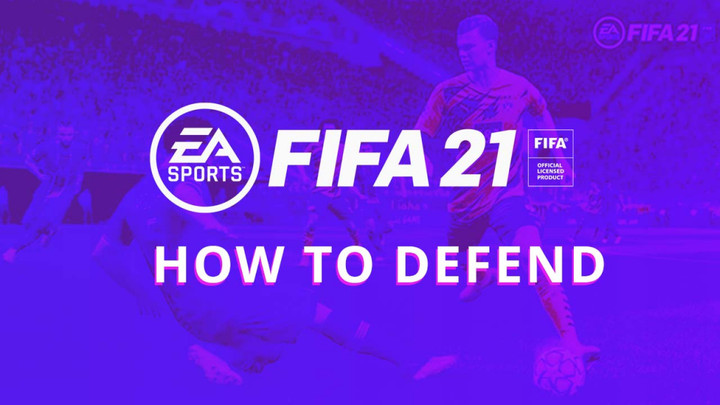Most players prefer attacking rather than defending, and it’s easy to understand why. There’s nothing more satisfying than scoring an incredible goal. But just like in real football, defending is an integral part of FIFA 21, and it can be exhilarating and rewarding too.
Let’s be honest; as a newcomer, you’ll spend a good portion of your game defending, especially against skilled opponents. Most players spend at least half of a match defending unless they’re able to maintain almost all of the possession. For that reason alone, it’s necessary to know how to defend.
But defending is a dynamic process, and the correct thing to do depends on the situation. That’s what makes it easy to learn, but hard to master. However, if you take some time to learn the ins and outs of defending, you’ll be able to stop even the best players from scoring goals, and you’ll start racking up those clean sheets in no time.
The best place to start is to know all the controls. There’s more to defending than a well-timed tackle in FIFA 21, with new dribbling and positioning features. It also includes blocking, changing players, clearing the ball, containing the opposition, intercepting passes, jockeying, pulling and holding, and rushing the goalkeeping out of the goals.
Here’s a list of all the controls that can be used when defending.
| Action | PlayStation | Xbox |
| Change Player | L1 | LB |
| Change Player (Manual) | R | R |
| Tackle | ◯ | B |
| Push or Pull | ◯ when chasing | B when chasing |
| Hard Tackle | Hold ◯ | Hold B |
| Instant Hard Tackle | R1 + ◯ | RB + B |
| Sliding Tackle | ▢ | X |
| Clearance | ◯ | B |
| Shoulder Challenge/Seal Out | Tap L2 | Tap LT |
| Contain | Hold X | Hold A |
| Teammate Contain | Hold R1 | Hold RB |
| Running Jockey | L2 + R2 | LT + RT |
| Pull and Hold | Hold ◯ | Hold B |
| Quick Get Up | ▢ | X |
| Engage Shielding Opponent | L2 + L towards shielding direction | LT + L towards shielding direction |
| Rush Goalkeeper Out | △ | Y |
| Goalkeeper Cross Intercept | △ then hold △ | Y then hold Y |
| Jockey/Grab and Hold | Hold L2 | Hold LT |
Naturally, the basic controls, specifically tackling, hard tackling, and sliding, are the most important and often the most effective. But switching players, containing, and jockeying can make an enormous difference too.
Switching players and containing might be even more critical because if you’re not controlling the right player at the right time, and they’re not in the correct position, it doesn’t matter how good you are at tackling. You won’t even have the chance to do it.
It’s also not a good idea to be a little too trigger happy with your tackling. That’s because experienced players know how to take advantage of mistimed and poorly executed tackles. There’s nothing worse than committing to an epic slide tackle as the last player in defense, only to watch the opponent step around you and march towards the goal for an easy one-on-one.
Knowing how to switch players quickly and intelligently also makes a big difference when it comes to intercepting the ball. If you’re able to master the art of intercepting, you’ll have a much easier time defending, since you’ll find yourself in fewer scenarios where you’ll need to rely on a clutch tackle.

Pushing and pulling your opponent is also a fantastic tool to strengthen your defending. It’s particularly useful when chasing an opponent from behind. But be careful, because if you do it too much or too aggressively, you’ll give away a free-kick and potentially earn yourself a card.
On a similar note, shoulder challenges are also a great way to prevent pacey opponents from slipping through your defense and running onto a through ball. If you can stop them in their tracks, you can stop a one-on-one before it happens. However, depending on a player’s strength attribute, it may or may not be effective, and it can sometimes lead to a free-kick for the opposition.
Last but not least, it’s also a good idea to know how and when to rush the goalkeeper out in certain situations. If you get it wrong, you could leave yourself vulnerable, and perhaps even get your goalkeeper sent off. But when timed correctly, which becomes second nature in due time, it’s a great way to bolster your defenses and make it much harder for an opponent to score.
The set of controls mentioned above should be enough to get you started and make you decent at defending. However, practice makes perfect, and in time, you’ll get even better and be able to use them all to their maximum efficiency.

 No ads, our video library,
No ads, our video library,

